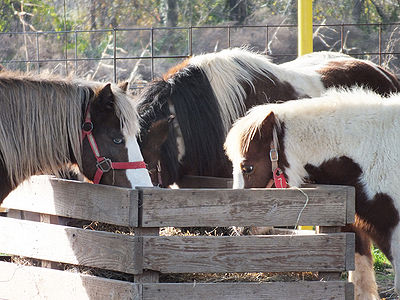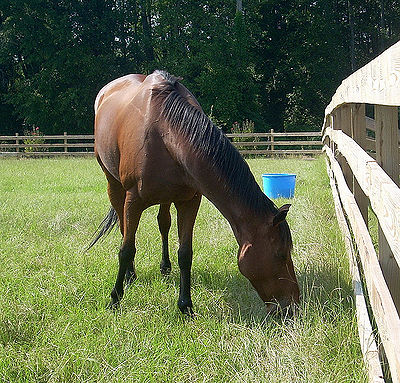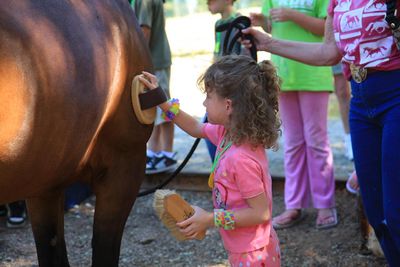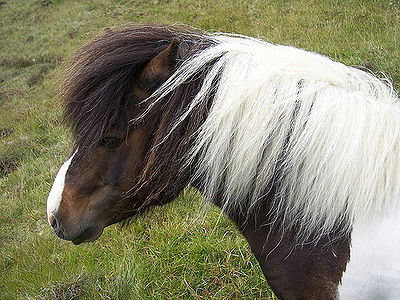
Safely storing horse feed and hay ensures that there’s always healthy, clean food on hand. Proper storage prevents mold, insect and rodent contamination and other contaminants that can grow on food.
The best quality hay is bought at harvest time. Reducing moisture content is vital to safe storage. Hay that is baled with too high a moisture percentage increases the risk of mold and heat which can potentially cause bales to burst suddenly into flame, posing a serious threat to horses.
Make sure the hay you purchase has been cured properly. Use a temperature probe inserted into bales to check that the temperature is not above 120 degrees fahrenheit. If higher, remove the bales and spread out to dry. Protect the hay from weather conditions such as snow and rain.
Hay should be stored in a separate, leak-proof building, not in the horse barn. Set the bales on pallets so they are not directly on the floor. This will reduce the chance of spoiling. Stack bales a maximum of 5 high making sure they are not stacked tightly and allow for good air circulation. Bales that are outdoors should be covered with a canvas tarp. Note that those outdoor bales are subject to loss of nutrients more quickly. Ask your veterinarian about a vitamin/mineral supplement for your horse.
Inspect hay carefully before feeding it to your horse.
Moisture in feed and grains is the biggest problem affecting the quality. Feed should be stored in containers that seal tightly and keep out any unwanted creatures (rodents, insects, etc.) as well as dampness. Follow manufacturers directions for expiration dates.
Store feed no more than 5 bags high on pallets, not directly on the floor. Once a bag is open, it begins to lose nutrients and can be exposed to insects and rodents, so check carefully before feeding to your horse. It’s best to purchase only enough feed to last no more than 6 weeks. Some ingredients can shorten the shelf life, such as grain, molasses and beet pulp.
Horses feed must be kept under cool, dry conditions. If you can, it might be a good idea to install an air-conditioner in the feed area. Check feed regularly to make sure your horse is receiving the best quality, clean food.
Related Articles



